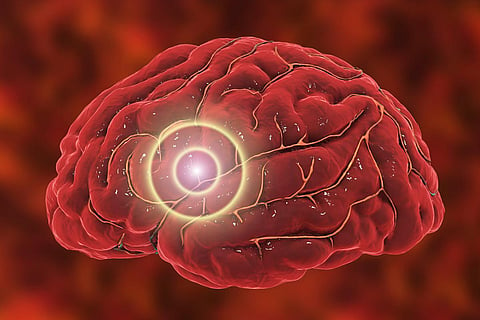TUESDAY, Oct. 22, 2024 (HealthDay News) -- At-home brain stimulation therapy can safely and effectively treat severe to moderate depression, a new clinical trial shows.
Rates of treatment response and depression remission were three times higher in people receiving the noninvasive brain stimulation, researchers said.
“The study results bring promise that an innovative treatment modality may become available for patients suffering from mood disorders some time in the near future,” said co-lead researcher Dr. Jaire Soares, chair of psychiatry with the University of Texas McGovern Medical School.
For the study, 174 people diagnosed with depression were randomly assigned to receive or forego brain stimulation during a 10-week course of treatment.
Those receiving brain stimulation got five 30-minute sessions a week for the first three weeks, followed by three 30-minute sessions a week for the next seven weeks.
The therapy is called transcranial direct current stimulation (tDCS), in which a current of between 0.5 to 2 milliampere is applied to the scalp through two electrodes. This amount of electricity causes at most a slight tingling sensation along the scalp.
The stimulation was self-administered by patients in their own homes, researchers said.
About 45% of people receiving the stimulation wound up with their depression in remission, compared with 22% of the control group, researchers found.
“The burden of depression is mostly keenly felt by the 280 million people worldwide currently managing symptoms. While a combination of antidepressants and therapy generally proves to be effective for many people, medication can have side effects that some can find disruptive,” said senior researcher Dr. Cynthia Fu, a professor of affective neuroscience and psychotherapy at King’s College London.
“Our study has demonstrated that tDCS is a potential first-line option that could help those in need,” Fu added in a University of Texas news release.
The study was funded by Flow Neuroscience, the manufacturer of the stimulation device.
The study was published Oct. 21 in the journal Nature Medicine.
More information
The Cleveland Clinic has more on depression.
SOURCE: University of Texas Health Science Center at Houston, news release, Oct. 21, 2024


